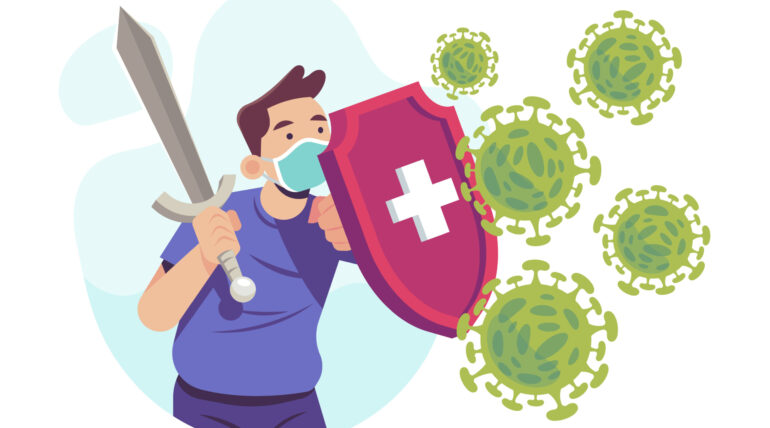
Infection control is a crucial aspect of maintaining health and safety in any environment, whether at home, in healthcare settings, or in public spaces. The spread of infections can have serious consequences, leading to illness, prolonged recovery times, and even life-threatening conditions. By understanding and implementing effective infection control practices, we can protect ourselves and others from the dangers posed by infectious diseases.
What is Infection Control?
Infection control refers to the policies and procedures used to prevent the spread of infections, particularly in environments where the risk is high, such as hospitals, clinics, and long-term care facilities. However, infection control is not limited to healthcare settings; it is essential in schools, workplaces, and homes. The goal is to minimize the transmission of pathogens—bacteria, viruses, fungi, and parasites—that can cause diseases.
Why is Infection Control Important?
- Preventing the Spread of Disease:
Infections can spread rapidly through direct contact, airborne transmission, contaminated surfaces, and bodily fluids. Effective infection control measures help break these chains of transmission, reducing the spread of diseases. This is particularly important for vulnerable populations, such as the elderly, young children, and individuals with weakened immune systems. - Protecting Healthcare Workers and Patients:
In healthcare settings, infection control is critical for safeguarding both patients and healthcare workers. Hospitals and clinics are environments where people with various infections come together, making the risk of cross-contamination high. By adhering to strict infection control protocols, healthcare workers can protect themselves and their patients from potentially dangerous infections. - Reducing Healthcare Costs:
Infections can lead to longer hospital stays, additional treatments, and increased use of antibiotics, all of which drive up healthcare costs. Effective infection control not only improves patient outcomes but also reduces the financial burden on healthcare systems by minimizing the need for costly interventions.
Key Infection Control Practices
To effectively control the spread of infections, it’s important to follow a set of practices designed to target different modes of transmission. Here are some of the most essential infection control measures:
- Hand Hygiene:
Hand hygiene is the single most important practice in preventing the spread of infections. Regular handwashing with soap and water, or using an alcohol-based hand sanitizer, can remove or kill pathogens on the skin. It’s essential to wash your hands before and after eating, after using the restroom, and after coming into contact with potentially contaminated surfaces or objects. - Use of Personal Protective Equipment (PPE): PPE, such as gloves, masks, gowns, and eye protection, acts as a barrier between you and infectious agents. In healthcare settings, PPE is used to protect both healthcare workers and patients from exposure to infections. In public settings, wearing masks can reduce the transmission of airborne diseases like the flu or COVID-19.
- Environmental Cleaning and Disinfection:
Surfaces that are frequently touched, such as doorknobs, light switches, and countertops, can harbor pathogens. Regular cleaning and disinfection of these surfaces are crucial in reducing the risk of infection. In healthcare settings, stringent cleaning protocols are in place to ensure that all areas are thoroughly disinfected. - Safe Disposal of Waste:
Proper disposal of medical waste, such as used needles, bandages, and contaminated PPE, is essential in preventing the spread of infections. Inappropriate disposal can lead to accidental exposure and the spread of pathogens. It’s important to follow guidelines for the safe disposal of waste, both in healthcare settings and at home. - Respiratory Hygiene:
Respiratory hygiene involves practices like covering your mouth and nose with a tissue or your elbow when coughing or sneezing. This helps prevent the spread of respiratory infections, such as colds, the flu, and COVID-19. Disposing of tissues immediately and performing hand hygiene afterward are also key components of respiratory hygiene. - Vaccination:
Vaccination is a powerful tool in infection control. Vaccines help protect individuals from specific infections and reduce the overall spread of disease in the community. Staying up-to-date with recommended vaccinations is crucial for personal and public health. - Isolation and Quarantine:
Isolation separates people who are infected with a contagious disease from those who are not infected, while quarantine restricts the movement of people who may have been exposed to a contagious disease. These practices are particularly important in controlling outbreaks of infectious diseases, helping to prevent the spread within communities.
The Role of Individuals in Infection Control
While healthcare institutions and governments play significant roles in infection control, individuals also have a crucial part to play. Personal responsibility in practicing good hygiene, staying home when sick, and following public health guidelines contributes to the overall effectiveness of infection control efforts.
In workplaces and schools, encouraging sick individuals to stay home, promoting hand hygiene, and ensuring regular cleaning of communal spaces are all essential practices. At home, keeping surfaces clean, practicing good hygiene, and staying informed about vaccinations are key steps in protecting yourself and your family.
Conclusion
Infection control is a shared responsibility that requires the commitment of individuals, healthcare professionals, and organizations. By understanding the importance of infection control and adopting key practices, we can significantly reduce the spread of infectious diseases, protect vulnerable populations, and contribute to a healthier, safer society.
Whether you’re at home, in the workplace, or in a healthcare setting, making infection control a priority is an investment in your health and the well-being of those around you. The simple actions we take every day—like washing our hands, using PPE, and getting vaccinated—can have a profound impact on preventing infections and saving lives.




